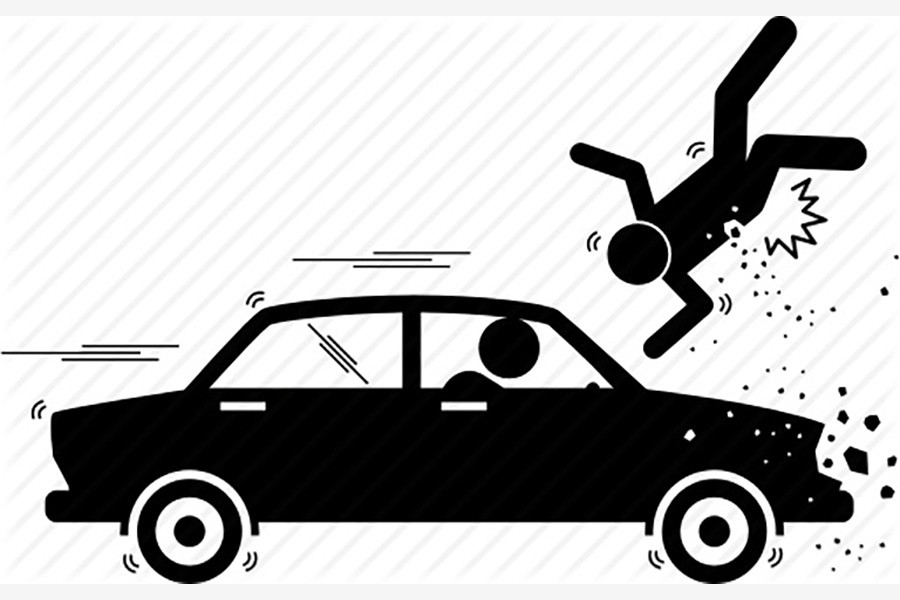The increase and frequency of road accidents in Dhaka have been mind-boggling lately. They cry for urgent monitoring and preventive measures in the easily identifiable problem areas.
Rather than blowing some hot air on the subject in discussions or pointing to self-complicated webs of enforcement difficulties, we must act on two compelling premises: First, in the aftermath of an accident we are used to hearing an oft-repeated statement, namely that the accident was waiting to happen. If that be so, why did we let the things come to such a pass that accidents are so predisposed? Why are we resigned to accepting it as a fait accompli?
Actually, we are averse to the proverb: "A stitch in time saves nine". Hear out former US president Theodore Roosevelt in his adorable best: "Nine-tenth of wisdom is being wise in time."
The second compulsion that nudges all concerned to guarantee reasonable road safety is moralistic, ethical and obligatory. Well, since you did n't face an accident, and consider yourself less vulnerable to it, you may feel the issue is remote to you. But is it? In the face of accidents galore, you come to realize that it may hit you from any direction-accidents are rich-poor blind.
As the number and variety of mishaps spiked, so has the rapidity of their occurrences increased. In the current month of April which is just past its half-way mark, already three tragic accidents have triggered a nation-wide shock effect. You can't fail to note that this has happened in parallel to the lingering, complicating agonies of the victims.
Early in April at Jatrabari a mother having just put her daughter in a bus alighted it only to be dashed to death by an onrushing vehicle. On April 6, two Bikash buses rushing in competition with each other crippled Ayesha who landed in Lab Aid's high care unit. Since being transferred to Dhaka Medical College Hospital, she is struggling to survive paralysis.
The most horrific fate awaited college student Rajib on April 8. Pressed between two onrushing buses, he lost his right hand ensnared on to the side of a bus from which he had to be extricated. From Lab Aid he was moved to Dhaka Medical College Hospital but soon as a fracture was detected in his skull, his condition turned worse. Accordingly he was receiving critical neurological treatment at the DMCH.
But after nine days of struggle, Raijb died reflecting the severity of the accident. Yet another wake-up call for doing something effective against mindlessly racing vehicles that tramples lives like centipedes.
Earlier on February 27, Khadiza Akhter Shuely, a final year student of Rangpur Medical College had met with a terrible road accident. Her two legs, one hand and a portion of another hand were paralysed. Her backbone was also damaged severely, according to a report in a leading English daily.
Clearly, all these incidents bring to the fore reckless driving topped up by fierce competition in racing each other out either due to deadline pressure or to get hold of passengers. This the novice or pathologically untrained drivers do being completely blindfolded to the wretched condition of their vehicles.
The issues are clear-cut and their resolution too is straightforward. First and foremost, conduct a review of the existing drivers in order to ensure that trained and duly certified drivers take the steering wheel. Secondly, fix a speed limit for public transports, rather a slab of limits depending on how busy certain road stretches are. Installing speed governors is an option to mull over. Strict vigil, enforcement and penalisation of breaches need to be part and parcel of the disciplining arrangements. The BRTA should phase out public transports that are not found road-worthy. Under no circumstances, vehicle aged 20 years and above shall be allowed to ply the streets.
An overriding imperative is to launch a massive and sustained campaign to sensitise all kinds of road users about standard traffic rules and regulations.


